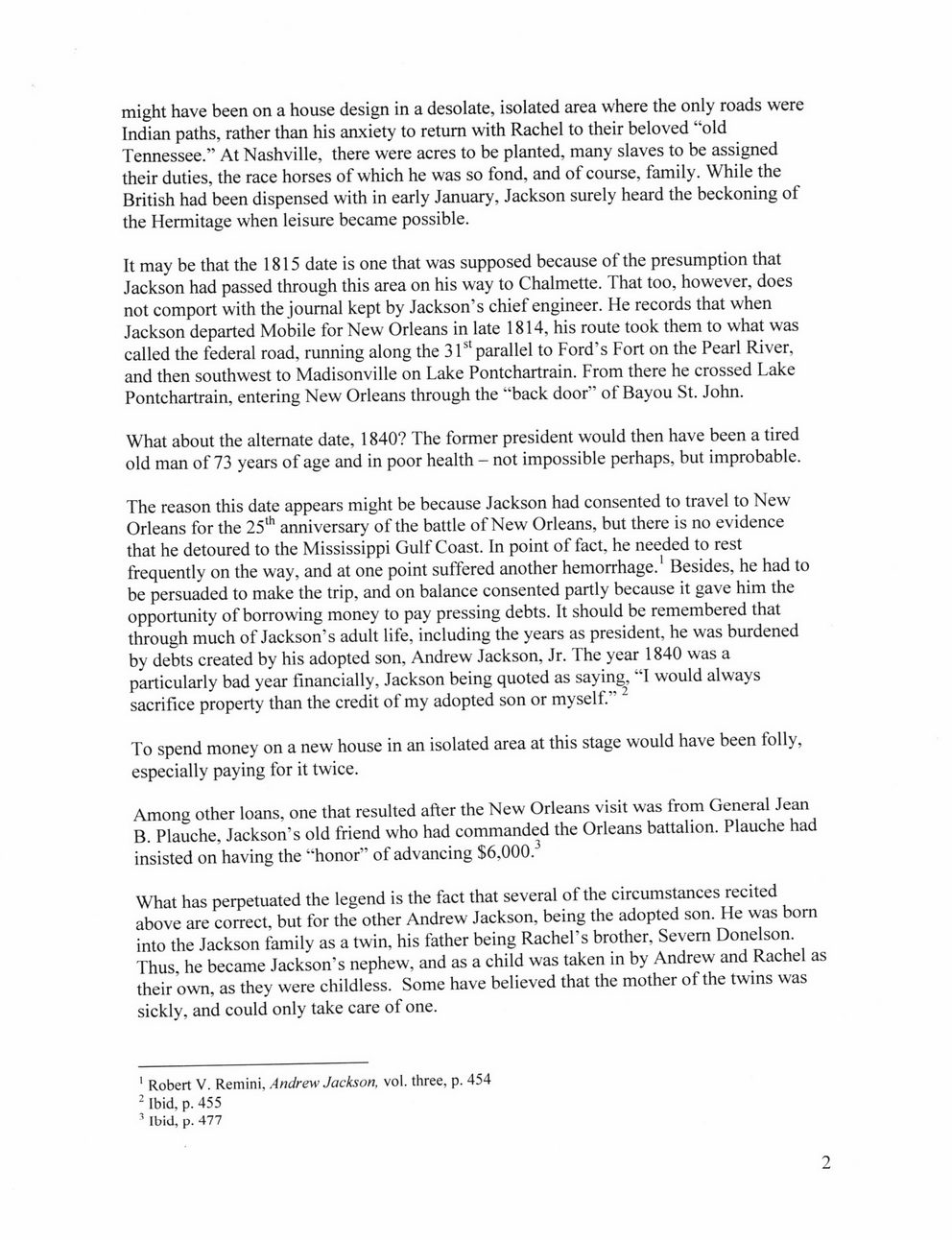This text was obtained via automated optical character recognition.
It has not been edited and may therefore contain several errors.
might have been on a house design in a desolate, isolated area where the only roads were Indian paths, rather than his anxiety to return with Rachel to their beloved ?old Tennessee.? At Nashville, there were acres to be planted, many slaves to be assigned their duties, the race horses of which he was so fond, and of course, family. While the British had been dispensed with in early January, Jackson surely heard the beckoning of the Hermitage when leisure became possible. It may be that the 1815 date is one that was supposed because of the presumption that Jackson had passed through this area on his way to Chalmette. That too, however, does not comport with the journal kept by Jackson?s chief engineer. He records that when Jackson departed Mobile for New Orleans in late 1814, his route took them to what was called the federal road, running along the 31st parallel to Ford?s Fort on the Pearl River, and then southwest to Madisonville on Lake Pontchartrain. From there he crossed Lake Pontehartrain, entering New Orleans through the ?back door? of Bayou St. John. What about the alternate date, 1840? The former president would then have been a tired old man of 73 years of age and in poor health - not impossible perhaps, but improbable. The reason this date appears might be because Jackson had consented to travel to New Orleans for the 25th anniversary of the battle of New Orleans, but there is no evidence that he detoured to the Mississippi Gulf Coast. In point of fact, he needed to rest frequently on the way, and at one point suffered another hemorrhage.1 Besides, he had to be persuaded to make the trip, and on balance consented partly because it gave him the opportunity of borrowing money to pay pressing debts. It should be remembered that through much of Jackson?s adult life, including the years as president, he was burdened by debts created by his adopted son, Andrew Jackson, Jr. The year 1840 was a particularly bad year financially, Jackson being quoted as saying, ?I would always sacrifice property than the credit of my adopted son or myself.? 2 To spend money on a new house in an isolated area at this stage would have been folly, especially paying for it twice. Among other loans, one that resulted after the New Orleans visit was from General Jean B. Plauche, Jackson?s old friend who had commanded the Orleans battalion. Plauche had insisted on having the ?honor? of advancing $6,000. What has perpetuated the legend is the fact that several of the circumstances recited above are correct, but for the other Andrew Jackson, being the adopted son. He was bom into the Jackson family as a twin, his father being Rachel?s brother, Severn Donelson. Thus, he became Jackson?s nephew, and as a child was taken in by Andrew and Rachel as their own, as they were childless. Some have believed that the mother of the twins was sickly, and could only take care of one. 1 Robert V. Remini, Andrew Jackson, vol. three, p. 454 2 Ibid, p. 455 3 Ibid, p. 477 2

Mitchell Sea-Song-Jackson-House-of-Hancock-County-part2